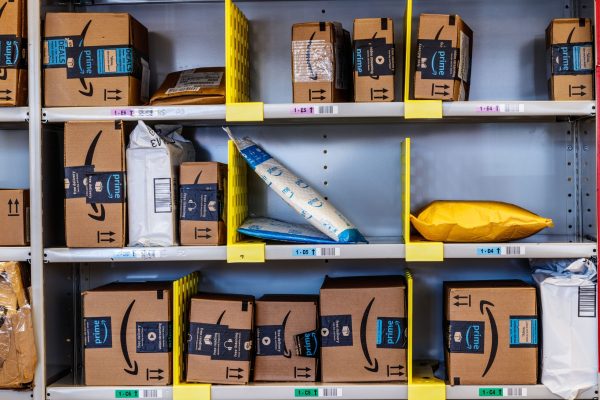Supply chains are often thought of as one directional processes – a series of sequenced actions which are carried out in order to achieve a desired outcome. In a world where business transactions always resulted in happy customers and expenditure was inconsequential, there would be little need for reverse logistics. In reality, reverse logistics plays an instrumental role in the supply chain strategy of any business looking to optimise its cost-and-time efficiency.
What is reverse logistics?
Reverse logistics is the process of moving goods reversely through the supply chain. The retail sector, both traditionally and via e-commerce channels, offers a prime (and likely familiar) example of this whereby unwanted products are returned by a customer and sent back to the warehouse for reselling.
Re-claiming unwanted products enables businesses to recover the value of items. Done smoothly, an efficient returns procedure boasts additional reputational benefits which include customer retention and building a good rapport between company and consumer.
Although it is more commonly associated with the retail sector, behind closed doors, a wide scope of industries rely on reverse logistics strategies to reduce overheads and increase profit. To ensure a better return on investment, food suppliers that transport their goods to supermarkets or restaurants may collect, clean and reuse crates and shipping equipment. Similarly, constructors may recover unused building materials to limit inventory waste and commercial pharmacists may return unneeded medication for redistribution.
Reverse logistics and the importance of getting it right
The Coronavirus pandemic saw the e-commerce sector explode. The growth of quick commerce (Q-commerce) hardened consumers’ expectation for accelerated responses and near-instantaneous results, resulting in many businesses adjusting their supply chain processes in line with increasing demand.
Now, with between 30-50% of online fashion purchases returned, and less than half resold at their original retail price, there is an overwhelming, multi-sided pressure on online businesses to streamline their returns procedure in equal proportion to their forwards supply chain. That’s because all the while items remain in the returns process they are unsellable, and the longer they are unavailable for resale the more they decrease in value. More so than ever, companies are against the clock.
Complicated and lengthy returns processes can earn businesses a poor reputation; a common avoidance tactic is to simply issue refunds and wave goodbye to profit. This appeases customers, who are increasingly paying closer attention to returns policies and online reviews, but places the brand at a significant disadvantage behind those that are benefitting from a refined returns procedure.
In an increasingly competitive landscape, brands are placing greater focus on marketing, driving sales, and ensuring that their forwards supply chains are streamlined. However, an increase in customers means an increase in returns, and in doing so, they risk putting their reverse logistics strategy under strain.
For many businesses, coordinating their reverse logistics strategy to make sure that it meets the expectations of its customers and still reaps the benefits can be complex and time-consuming. But navigating reverse logistics doesn’t have to feel like a battle to swim back upstream.
Simplifying your reverse logistics process
Logistics management encompasses all aspects of the supply chain – including a brand’s reverse logistics strategy. As a ‘buy five, keep one’ trend emerges among online shoppers, a returns procedure that is both time-and-cost efficient can have a big impact on a business’ profit and reputation.
Engaging a logistics provider who is experienced in managing both forwards and backwards supply chains is the simplest way to overcome the complexities of establishing a robust returns strategy.
At Sprint Logistics, our fleet of couriers are experts in supply chain navigation, bringing peace of mind to brands and their customers. To find out how our services can protect and boost your profit, contact us today.




